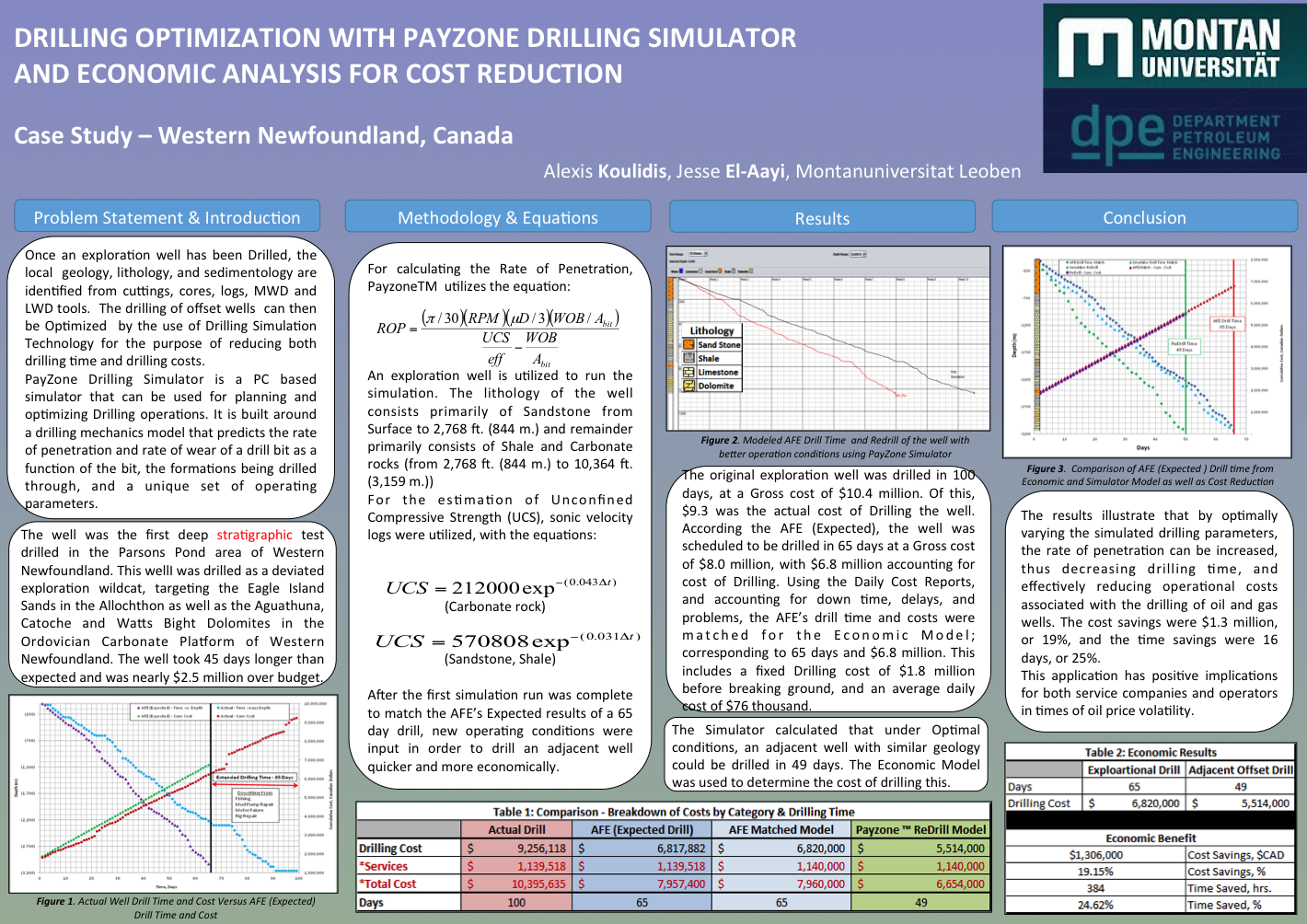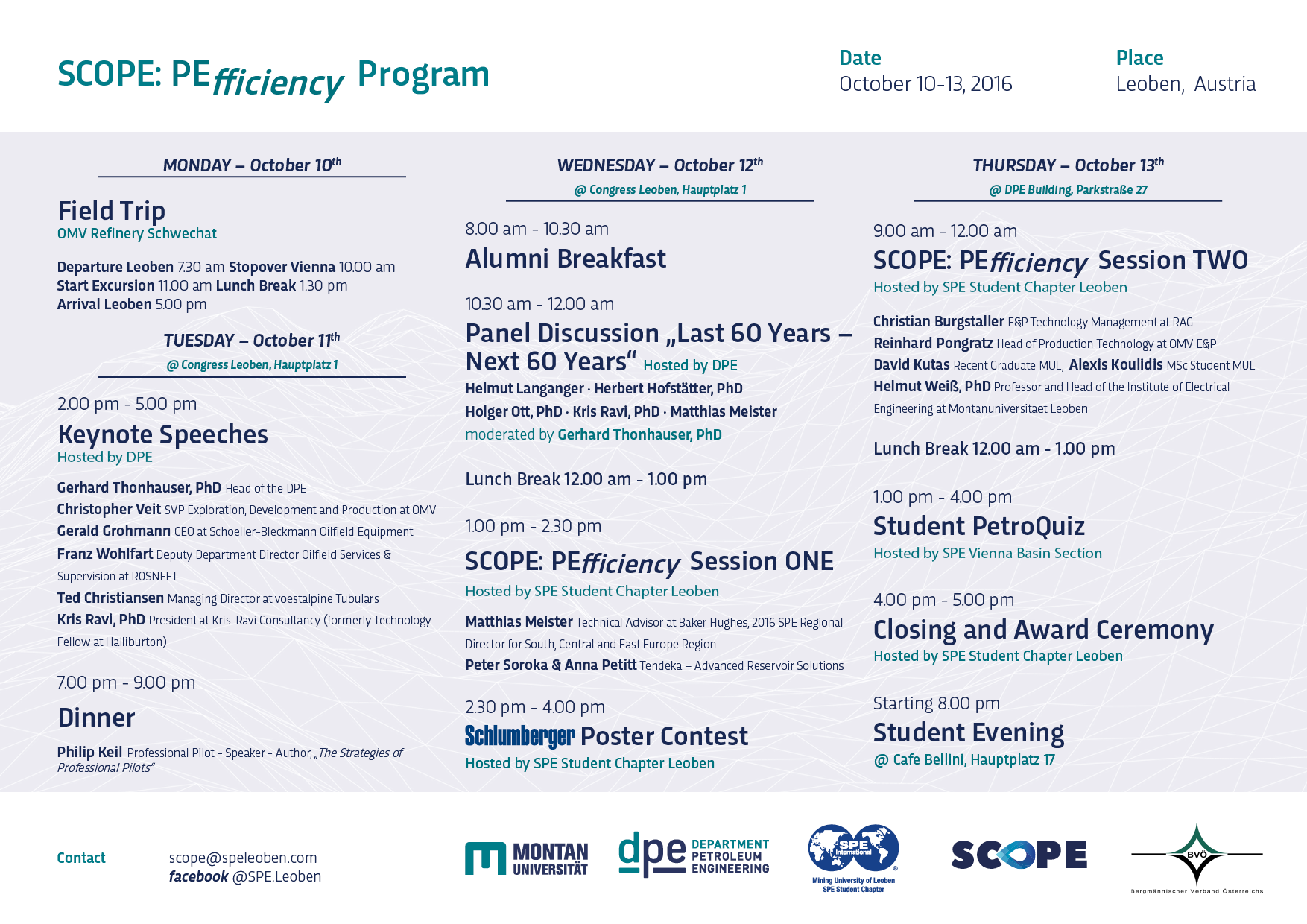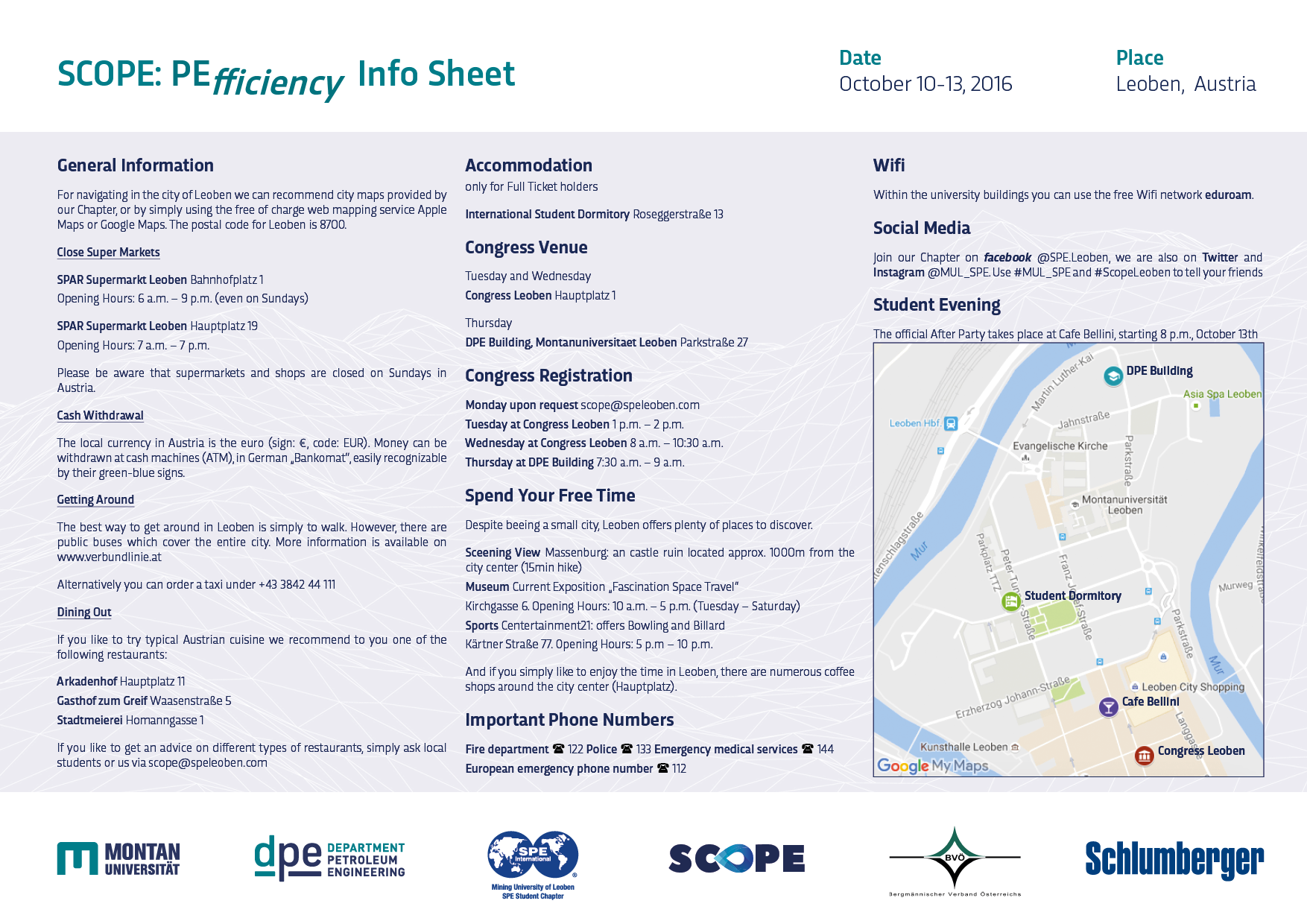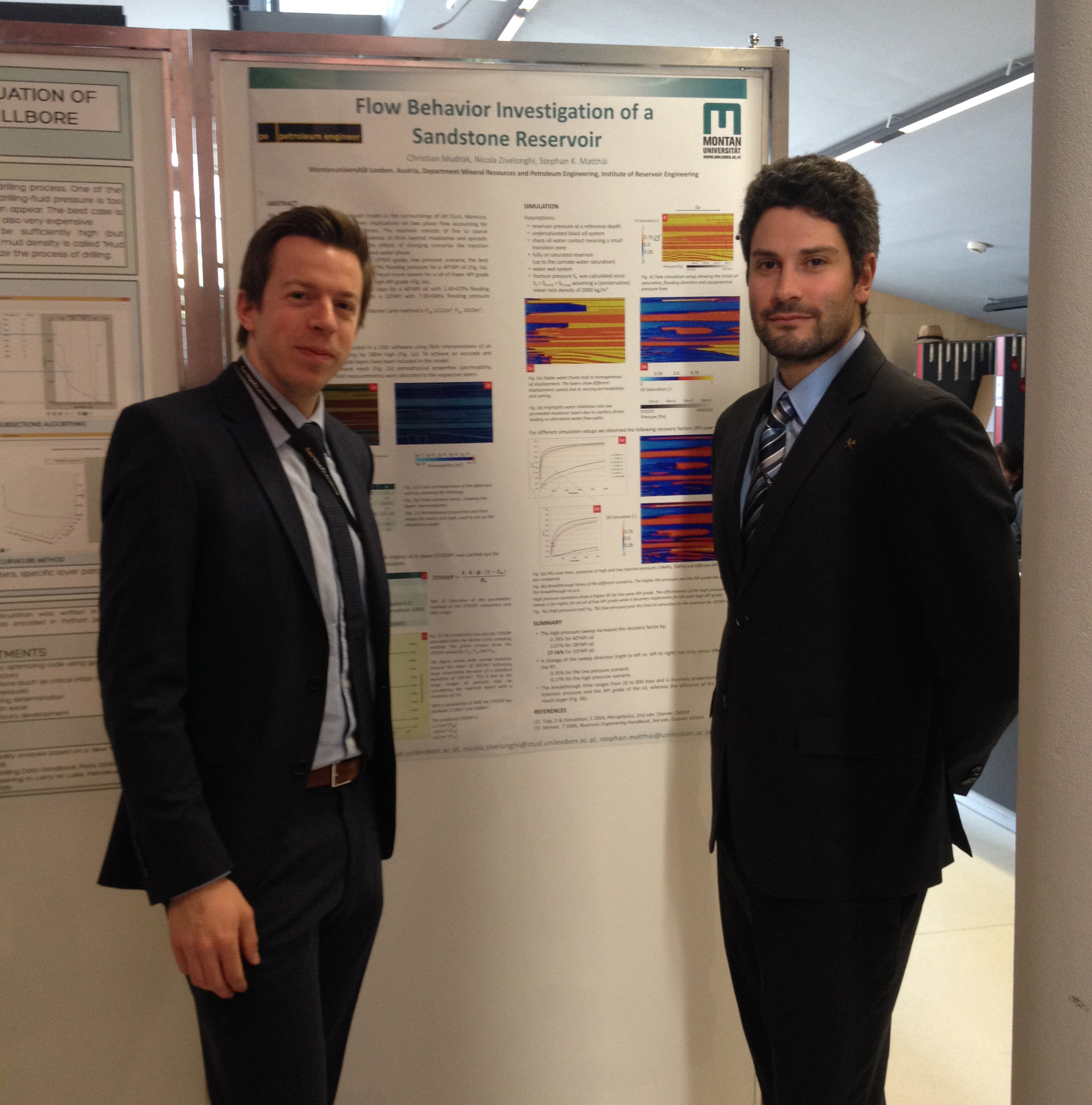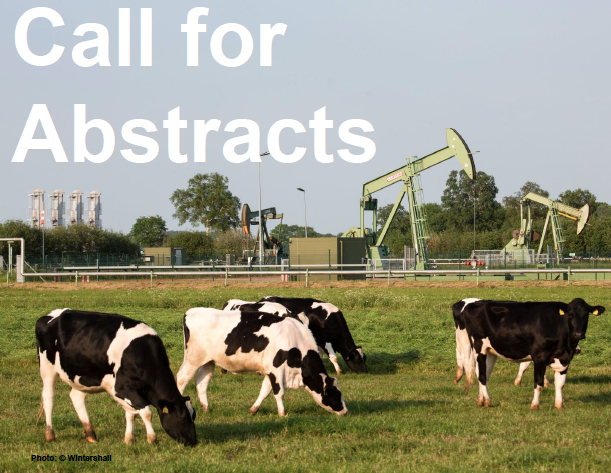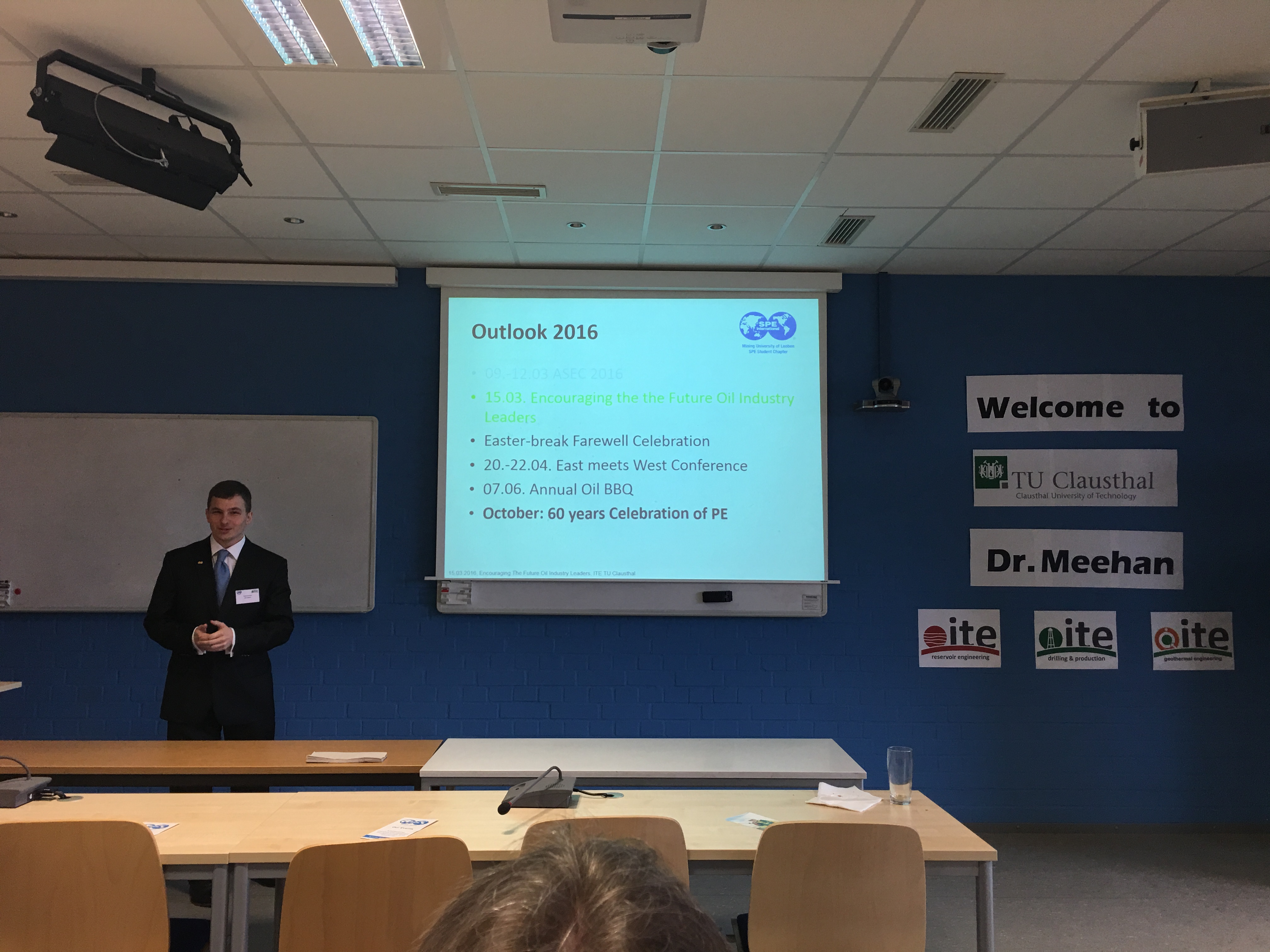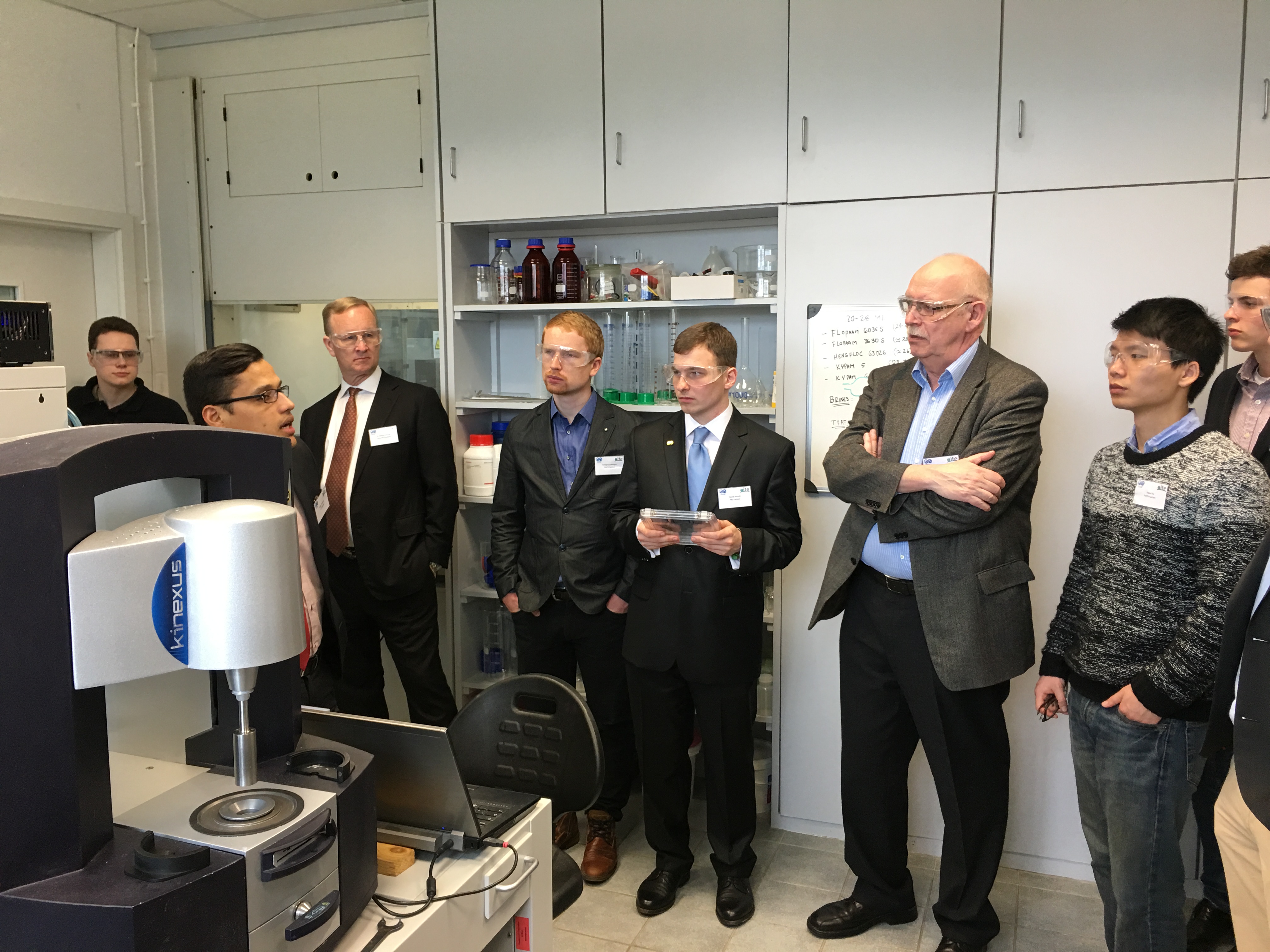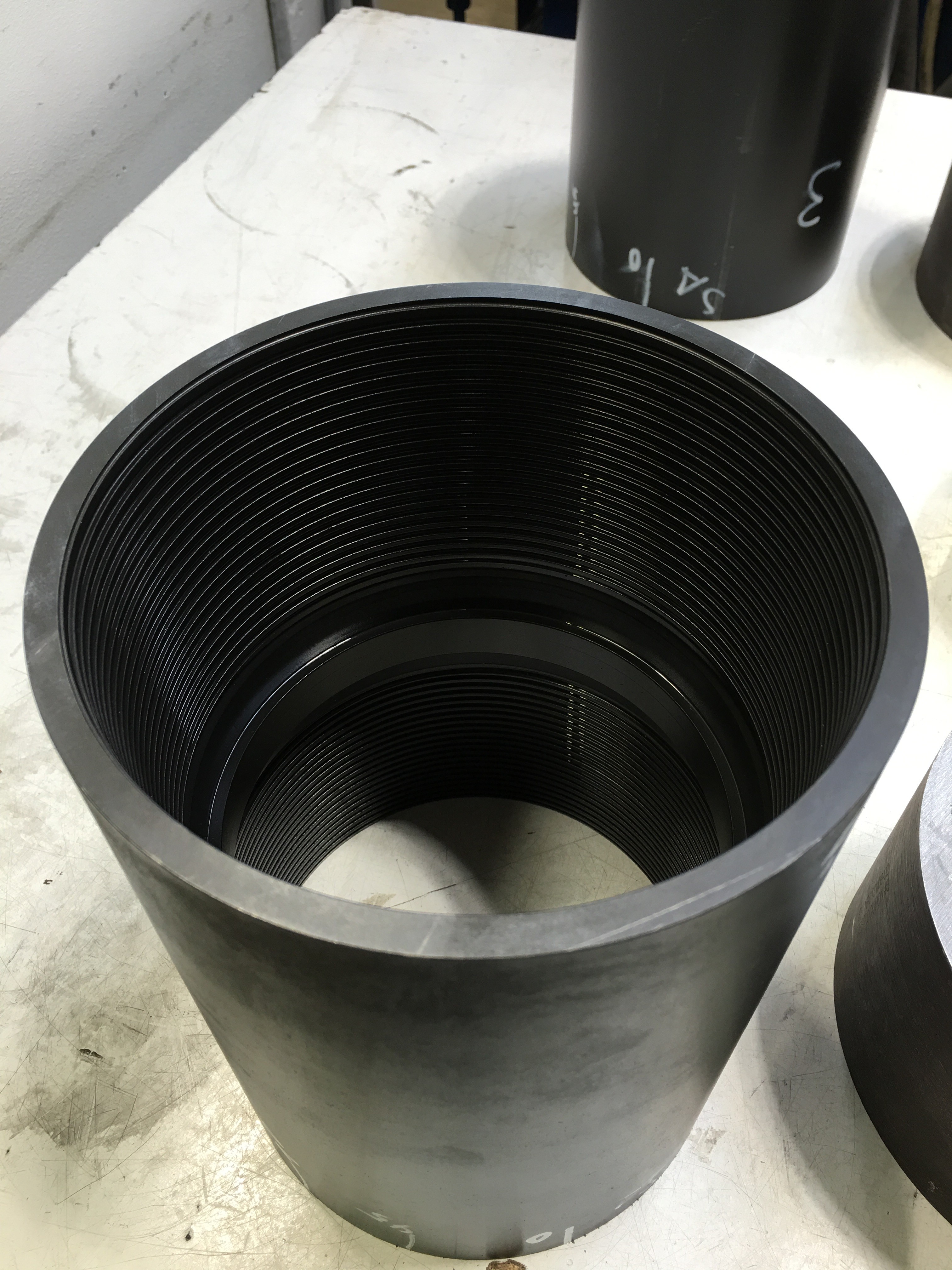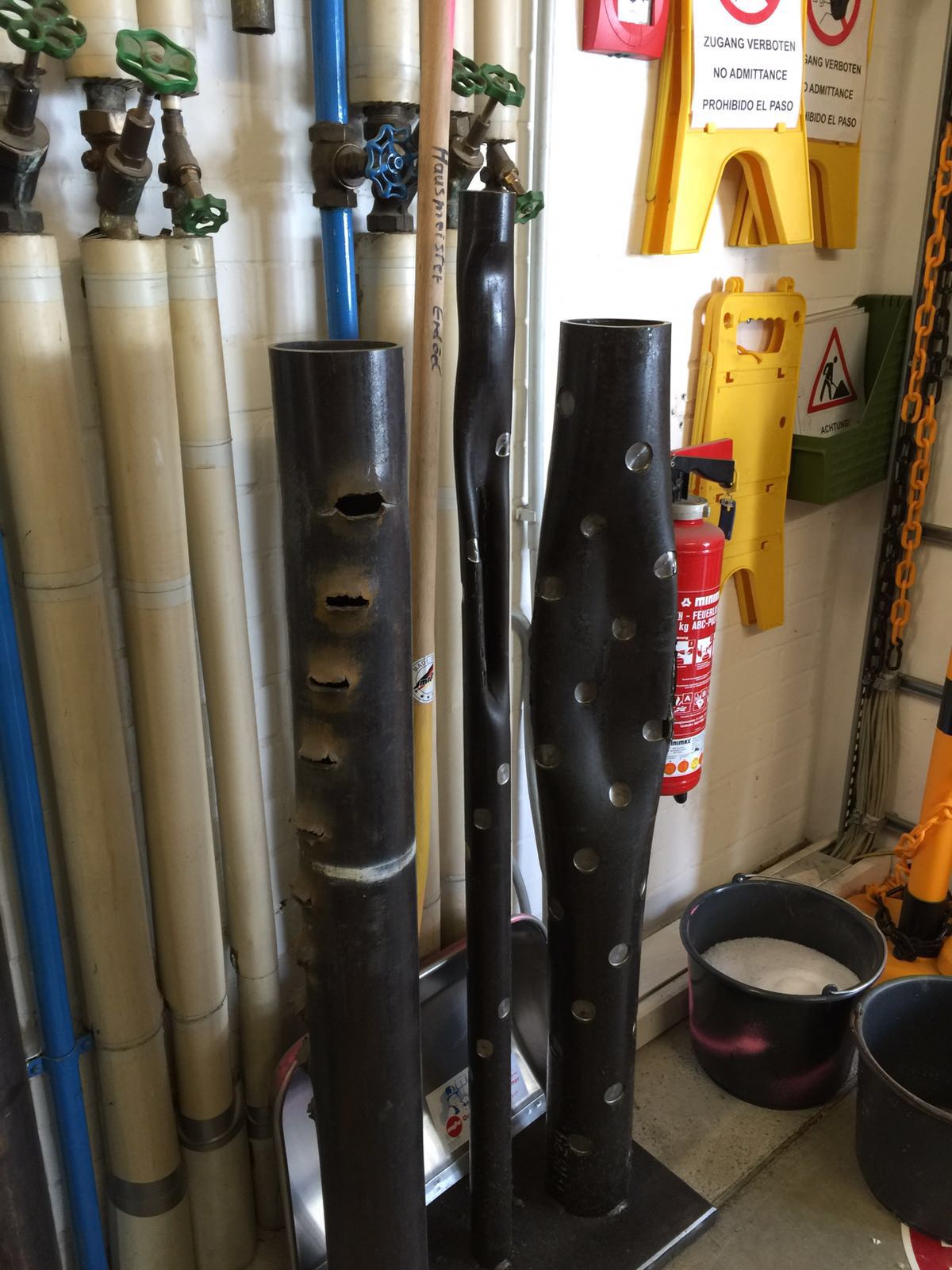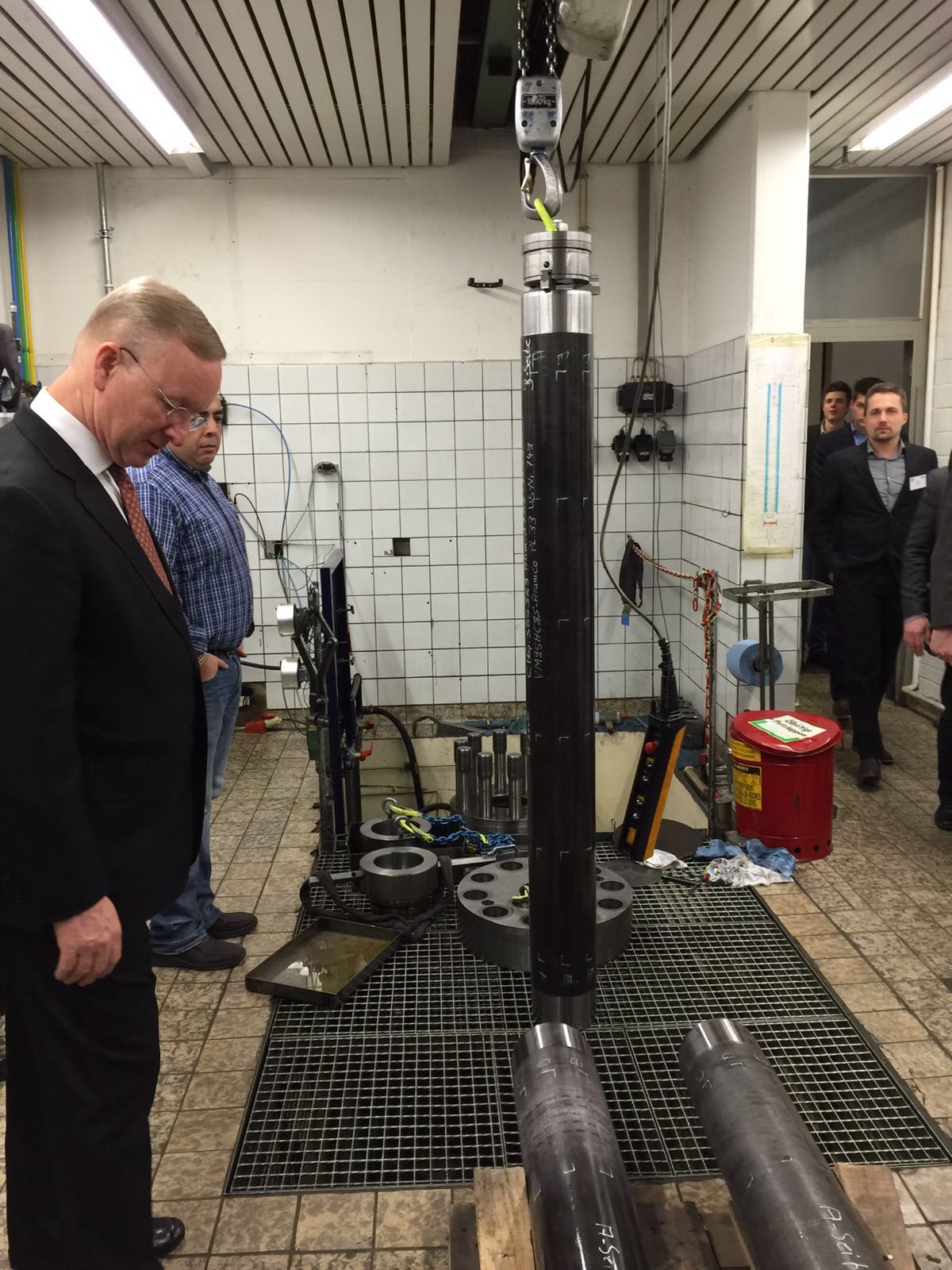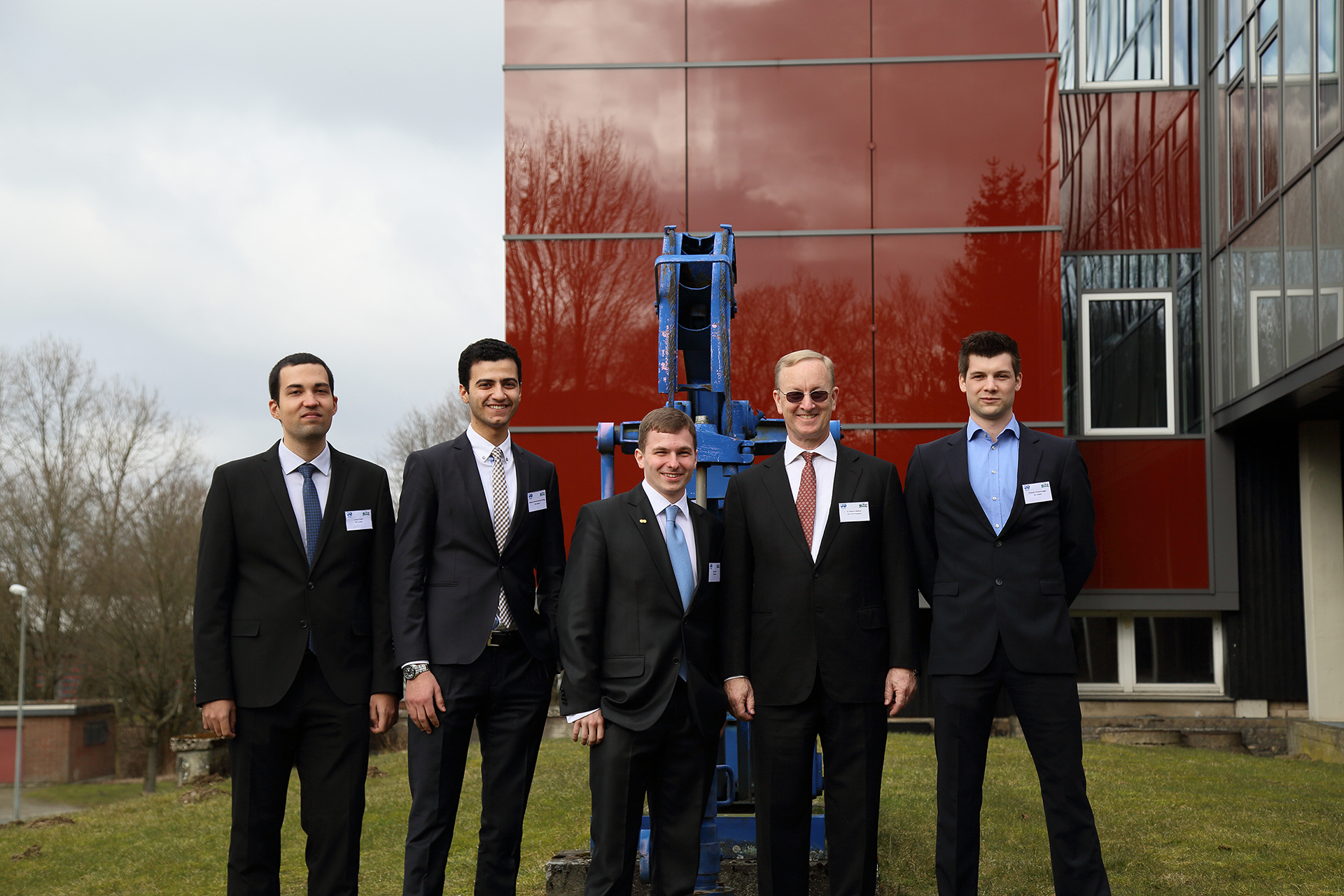Arriving there we were greeted by Mr Martin Müller, our tour guide. At first we were invited into the meeting room for a presentation about the refinery, giving us not only a good overview of the processes that happen in a refinery, but also about the in- and output of the refinery, as well as some interesting statistics.
For example, did you know that despite Austria’s reputation of producing hardly any oil 10% of the oil processed in Schwechat actually comes from the oil fields in Lower Austria? Or did you know where the by far largest amount of oil refined in Austria comes from? (If not, you’re probably not the only one. The correct answer is Kazakhstan, by the way.). All the imported oil, we learned today, comes to Austria via pipelines from Trieste in Italy. To transfer the same amount of oil by truck, more than 900 trucks would be required to travel the distance – per day!
Now that we knew where the crude oil comes from, we could start following its course through the refinery. The first step – after leaving the storage tanks (which can store three months’ worth refining, equaling about 2.4 million tons) – is distillation. The crude gets heated up, thus separating its constituents due to the different boiling points. Since the oil is often contaminated, for example with acid components like Sulphur, it has to be sweetened, i.e. the sour components need to be removed in order to avoid corrosion as well as other problems, e.g. harmful exhaust fumes.
Since the refinery cannot create the products in the same proportions as they are required, the distilled and desulphurized products are “upgraded”. This includes thermal and chemical treatments such as cracking and reforming, where the output can be precisely controlled via the operation parameters. This allows to adjust the refinery output to the actual consumer needs. In the case of Schwechat, this is about 40% diesel oil, 20% gasoline (Yes, we actually consume nearly twice as much diesel than gasoline in Austria!) and 10% jet fuel and petrochemicals each. The remaining 20% of the refinery output include for example hydrocarbon products such as bitumen and asphalt, LPG or CNG and byproducts such hydrogen, Sulphur or sulphuric acid, products that are required in large amounts by other industry branches, such as the steel industry.
The last step in the refinery process is the so-called blending. Individual fractions are recombined to achieve certain properties and specifications, such as the octane number for gasoline fuels, or freezing points (for example diesel composition varies between summer and winter to guarantee an optimum efficiency while not risking that the fuel freezes). OMV applies an in-line blending system, which means that the different semi-products are not mixed in a tank using a huge impeller to avoid separation, but by feeding different semi-products directly into the pipes. This has the advantage of being more efficient and at the same time achieving a more homogeneous product.
The now finished products are ready for shipping. They are pumped to the tank farms in Lobau (Vienna), St. Valentin (Upper Austria) or directly to the close-by airport (only jet fuel). From there, they are either distributed onwards using ships, trucks or trains, or directly sold to the consumers.
Passing by refinery on the way to the airport, it appears needless to say that such a plant consumes a lot of energy. Hence OMV has its own power plant on site. The energy created is not only consumed in the refinery itself, but also sold to the surrounding towns. Furthermore, OMV uses the heated water and steam to produce energy, and they also to provide the heat for heating homes and the airport.
Mr Müller also talked about the investments OMV makes to reduce the environmental footprint, and to make the refining process greener. This includes not only converting the generated heat, hot process water and the electricity as energy on site and in the surrounding area, but also the implementation of new technologies, such as the recent reactor upgrade or the ButaMax facility. This facility produces butadiene, a substance required for producing rubber (e.g. for tires). Furthermore, many other industry branches that rely on refinery products, semi- or byproducts are located next to the refinery, rendering transportation nearly unnecessary. For example, Borealis, who produce polymers, are located right beside the refinery itself.
After this presentation, packed with lots of information, we were glad to have a short coffee break before entering the bus and getting the opportunity to see all those facilities we had just heard about in operations. In about 45 minutes, we got a good impression not only of the immense size of the refinery, but also about the facilities it hosts, and their basic working principles.
Soon it was time for lunch, and then to travel back to Leoben, although we encountered a little surprise on our way back…
About halfway to Leoben, the bus suddenly slowed down, and exited the highway for a stop in Ternitz in Lower Austria. To the surprise of the participants, we could arrange a quick visit at Schoeller Bleckmann Oilfield Equipment (SBO), one of the world’s leading manufacturers of special purpose drill string components, such as the basis for downhole motors, non-magnetic drill pipes or various logging and measurement devices. Although due to the current industry downturn the plant seemed nearly dead, we could get a good impression of how things could be here when the demand for high-quality products is high. The tour gave the opportunity to see the whole manufacturing process, starting from the raw steel cylinder over various treatment processes to the precision work of drilling out holes with diameters reaching from a few millimeters up to several inches, which are required to fit in various measurement tools, motors or electrical cables.




